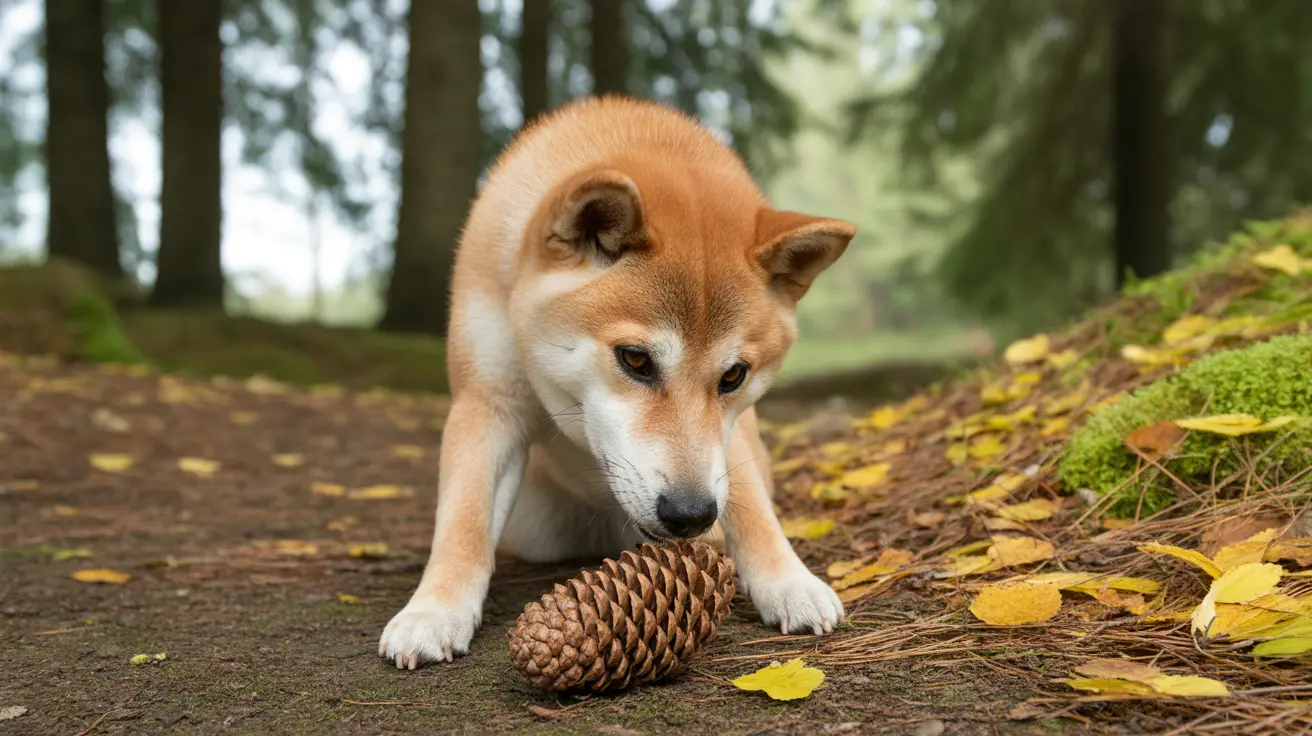Introduction
Many dog owners have experienced that moment of panic when their furry friend discovers a pine cone during a walk. While these natural objects might seem harmless or even like potential toys, pine cones can pose serious risks to our canine companions. Understanding why pine cones are bad for dogs and recognizing the potential dangers is crucial for every pet owner's peace of mind and their dog's safety.
Let's explore the comprehensive risks associated with dogs and pine cones, from physical hazards to potential health complications, and learn how to keep our four-legged friends safe from these seemingly innocent natural objects.
Physical Dangers of Pine Cones
Pine cones present several immediate physical risks to dogs that make them particularly dangerous. Their sharp, pointed scales can cause injuries to the mouth, throat, and digestive tract. Even small pieces can splinter, potentially leading to serious internal damage.
The woody texture and size of pine cones also present a significant choking hazard, especially for smaller dogs and puppies. Large pieces can become lodged in the throat or create blockages further down the digestive tract, potentially requiring emergency surgery to remove.
Health Risks and Complications
While pine cones aren't inherently toxic, they can cause various health issues when ingested. The rough texture can irritate the digestive system, leading to vomiting, diarrhea, and abdominal pain. Pine cones often contain sap and natural oils that can upset a dog's stomach and cause digestive disturbances.
Additionally, pine cones may harbor harmful substances such as:
- Pesticides and chemicals from treated areas
- Mold and fungi
- Parasites and bacteria
- Tree sap containing irritating compounds
Warning Signs to Watch For
If your dog has encountered a pine cone, be alert for these symptoms:
- Excessive drooling or pawing at the mouth
- Vomiting or retching
- Difficulty swallowing
- Lethargy or unusual behavior
- Loss of appetite
- Constipation or straining to defecate
- Abdominal pain or bloating
Prevention and Training Tips
The best way to protect your dog from pine cone-related injuries is through prevention. Keep your yard clear of pine cones and maintain vigilant supervision during walks in pine-rich areas. Teaching reliable "leave it" and "drop it" commands can help prevent your dog from picking up pine cones in the first place.
Provide appropriate alternatives for dogs who are attracted to pine cones, such as durable chew toys or interactive games that satisfy their natural urge to explore and chew.
When to Seek Veterinary Care
Don't wait to seek veterinary attention if you suspect your dog has ingested a pine cone or is showing signs of distress. Immediate medical intervention may be necessary if you observe:
- Difficulty breathing
- Persistent vomiting
- Signs of severe pain
- Lethargy or collapse
- Blood in vomit or stool
Frequently Asked Questions
Are pine cones toxic or poisonous to dogs?
No, pine cones themselves aren't toxic, but they can cause serious health issues due to their physical properties and potential contamination with harmful substances.
What health risks do pine cones pose if my dog chews or eats them?
Pine cones can cause choking, intestinal blockages, internal injuries, and digestive upset. Their sharp edges can damage the mouth, throat, and digestive tract.
How can I tell if my dog is having a problem after ingesting a pine cone?
Watch for symptoms like vomiting, difficulty swallowing, lethargy, loss of appetite, abdominal pain, or changes in bowel movements. Any of these signs warrant veterinary attention.
Why are dogs attracted to pine cones during walks or playtime?
Dogs are naturally curious and attracted to pine cones due to their interesting texture, smell, and the way they move when batted around. Some dogs may be drawn to them out of boredom or natural scavenging instincts.
What should I do if my dog swallows a pine cone or shows signs of distress?
Contact your veterinarian immediately. Don't attempt to induce vomiting unless specifically instructed by a professional, as this could cause additional harm.
Conclusion
While pine cones are natural objects commonly found in our environment, they pose significant risks to our canine companions. Being aware of these dangers and taking preventative measures can help keep your dog safe from potentially serious health complications. Always err on the side of caution and contact your veterinarian if you suspect your dog has ingested a pine cone or is showing any concerning symptoms.






